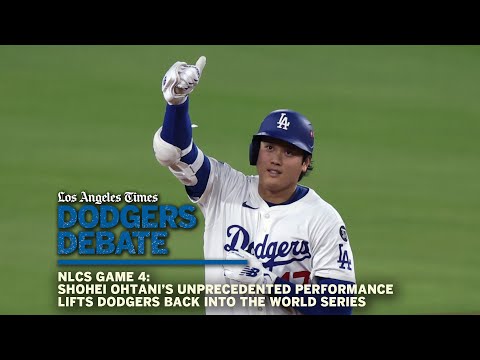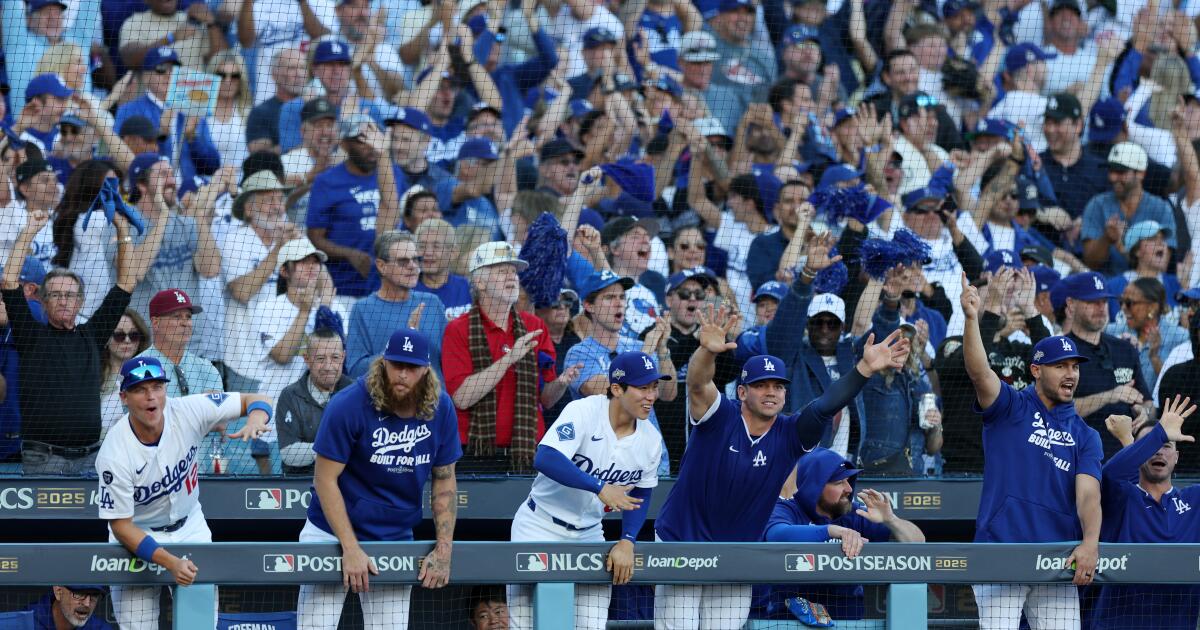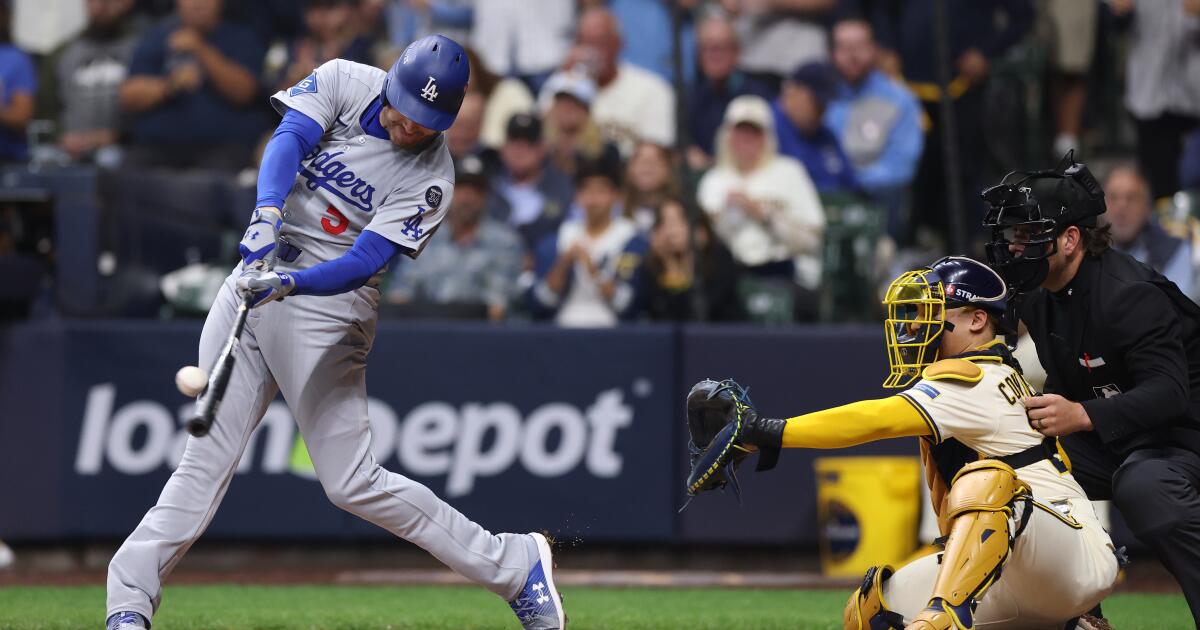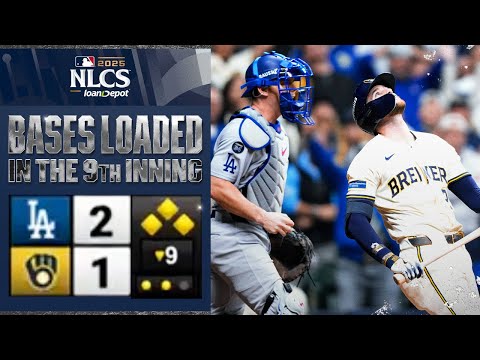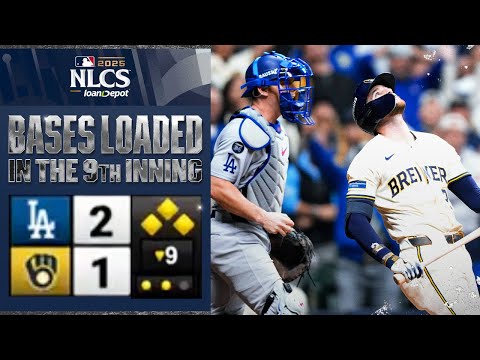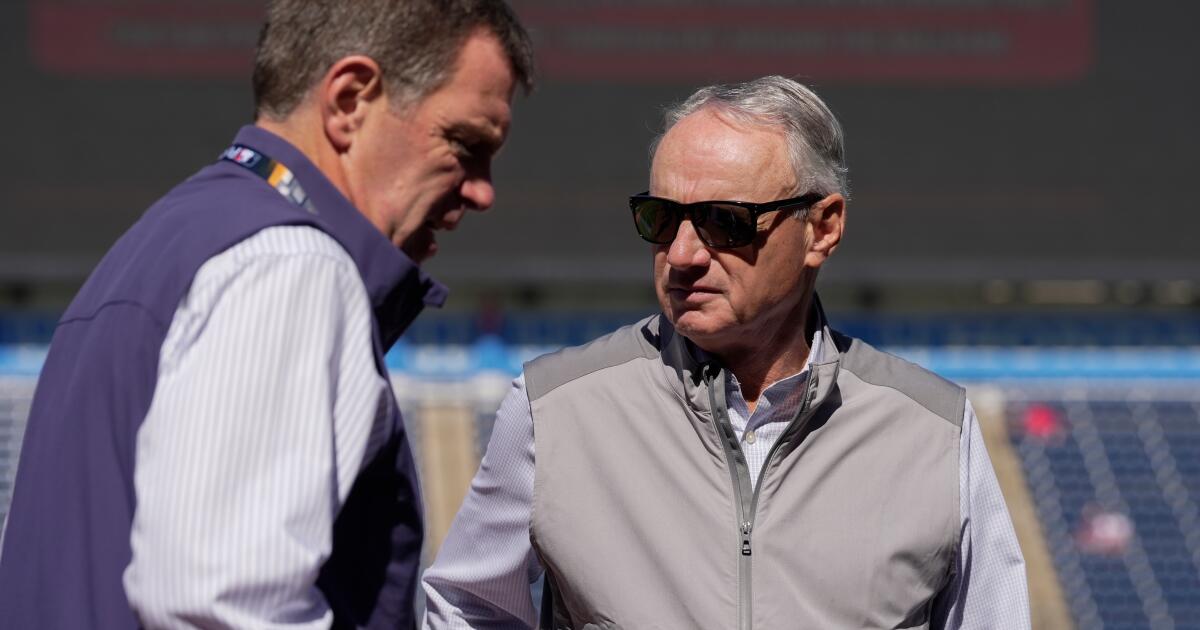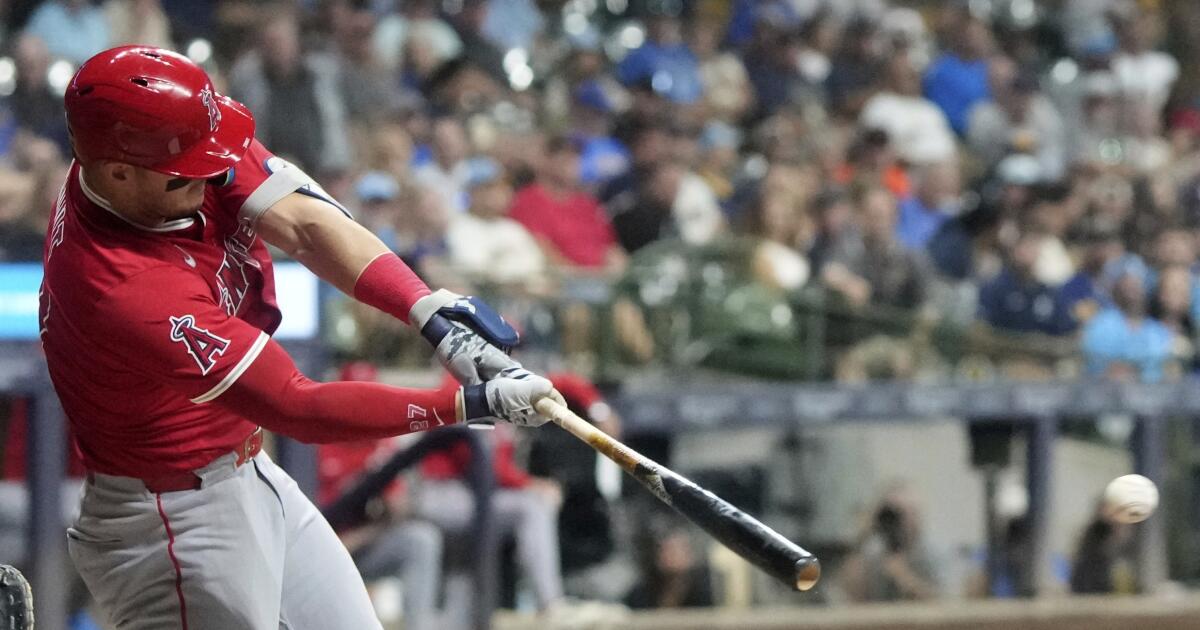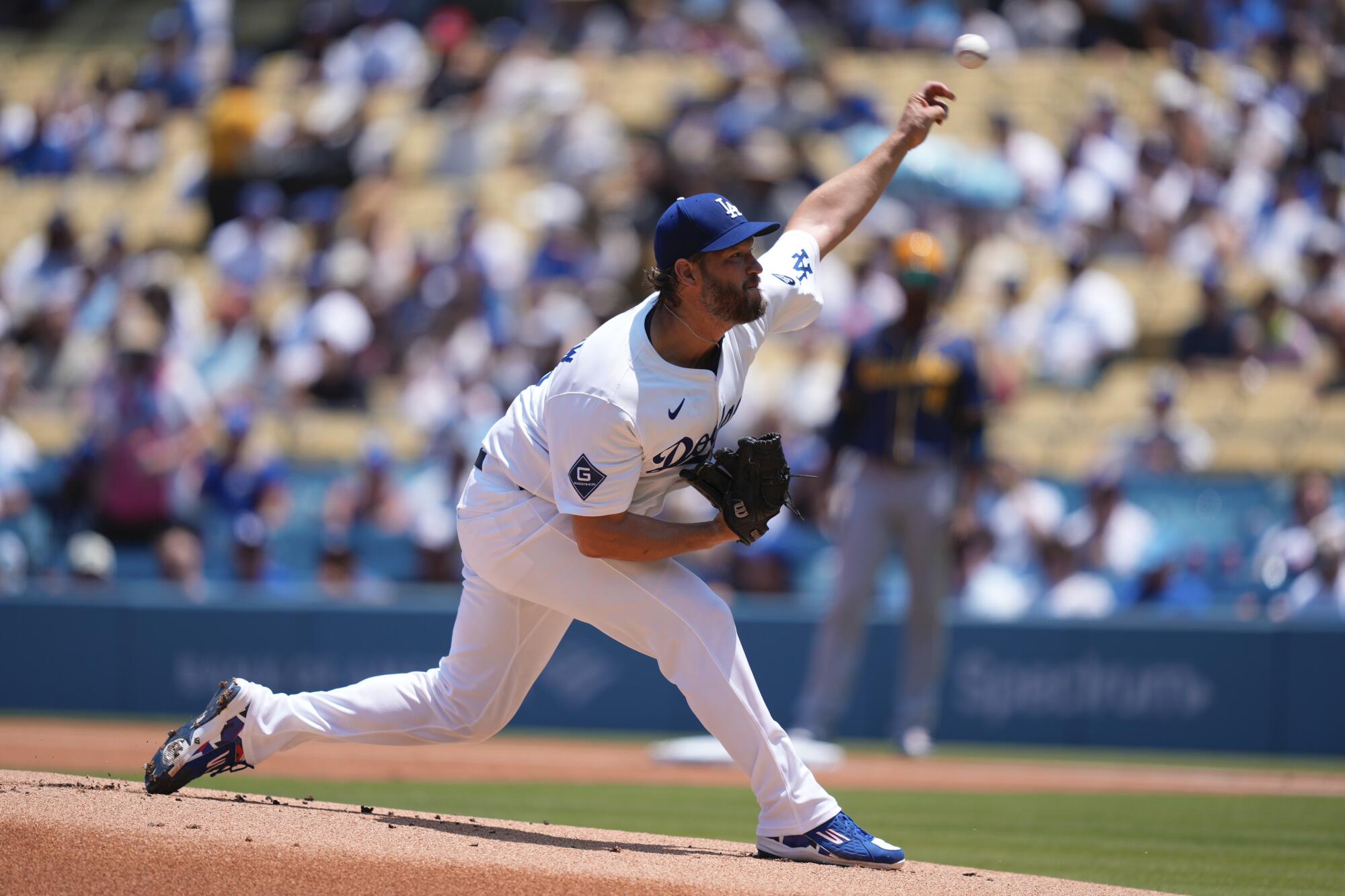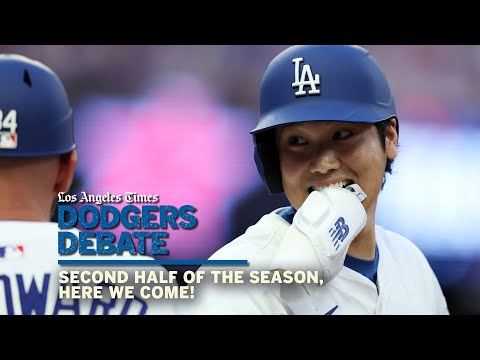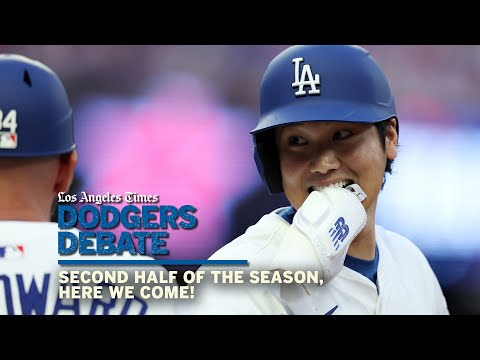Another champagne celebration for the Dodgers, who still want one more
Max Muncy stood in the middle of what is normally an underground batting cage. But on Friday, moments after the Dodgers completed a four-game sweep of the Milwaukee Brewers in the National League Championship Series, it had been transformed into the most exclusive drinking spot in the city, the place where the players came to toast their return to the World Series.
Cheap champagne and even cheaper beer flowed freely — mostly over people’s heads — before forming deep puddles on some plastic sheeting that had hastily been laid along the floor.
“You never get tired of this. You can’t ever take this for granted,” Muncy, the Dodger third baseman said, as he clutched a lit cigar in one hand and two red Budweiser bottles in the other. “This is the whole reason that you play baseball. You want to be in this moment.
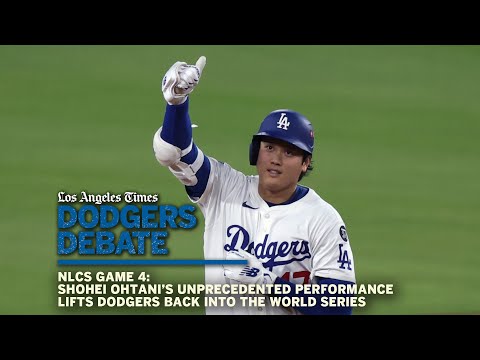
“You want to play postseason baseball. And to be able to do it for as many times as I’ve done it, it’s just truly a blessing.”
The moment Muncy referred to is the alcohol-infused postseason series victory celebration, a tradition that dates to the 1960 World Series when members of the Pittsburgh Pirates chose not to drink the champagne that had been wheeled into their victorious clubhouse, but began spraying it on one another instead.
As baseball’s postseason format expanded, so did the number of champagne celebrations; Friday’s was the Dodgers’ fifth in 29 days and 10th in less than two years. And it may not be the last since they’ll open the World Series next weekend with a chance to become the first repeat champion this century.
“It’s a grown man acting like a little kid. You look forward it,” reliever Blake Treinen, who has played for seven playoff teams in his career, said as he leaned on a giant red cooler stuffed with mostly empty bottles of champagne.
When the Dodgers qualified for the playoffs last month, they toasted that achievement at home, then toasted themselves again six days later in Arizona when they clinched the division title. This month they’ve beaten the Cincinnati Reds in the wild-card series, the Philadelphia Phillies in the Division Series and now the Brewers in the LCS.
And with each victory, the celebrations have grown in fervor and joy.
“It gets better and better each round,” pitcher Tyler Glasnow agreed.
As soon as Caleb Durbin’s fly ball settled in Andy Pages’ glove near the right-field bullpen gate Friday night, extending the Dodgers’ season while ending the Brewers’, fireworks filled the air and Randy Newman’s “I Love L.A.” blared from the stadium’s sound system. As a small army of workers rushed to set up a temporary wooden stage behind second base, the players pulled on gray t-shirts with words National League Champions and the script Dodgers set against a baseball diamond outlined in yellow.
On their heads they wore black caps that read World Series 2025. But the public ceremony on the stage, in which chairman Mark Walter was presented with the league championship trophy and Shohei Ohtani was handed the series MVP trophy, was short and tame compared to raucous fiesta that started in the batting cage a few minutes later.
Dodgers star Shohei Ohtani celebrates in the clubhouse after the team’s NLCS-clinching win over the Brewers at Dodger Stadium on Friday night.
(Robert Gauthier / Los Angeles Times)
“These kinds of celebrations, you can never have too many,” infielder Miguel Rojas shouted in Spanish over a loud soundtrack of percussive music that played in a loop. “A moment like this is really important, really beautiful.
“Five times this year. We’ve got one to go.”
A few feet away outfielder Teoscar Hernández surrounded himself with a handful of journalists in an unsuccessful attempt to hide from the champagne sprays directed at him by teammates.
“I don’t think there’s anybody that gets tired of this. I’m not tired,” he said. “I want to get one more, and then five more next year.
“This is the only time that you can get to celebrate something, to be free, not thinking about your job, not thinking about what you got to do tomorrow.”
As the party began to wane and players left the batting cage to join their families in a quieter gathering on the field, Muncy looked down at the thick victory cigar between his fingers and turned reflective. The celebration wasn’t about champagne or beer or victory cigars. It wasn’t even about winning.
It was more about surviving the crucible of the longest schedule in pro sports and celebrating that with the people who were with you every step of the way.
“It’s amazing, is what it is,” he said. “This is one of the best parts about being in the postseason. You grind with your teammates and your brothers for seven, eight months, all the way back to spring training.
“This is just like a culmination of all your collective efforts.”
Who wouldn’t want drink to that?
